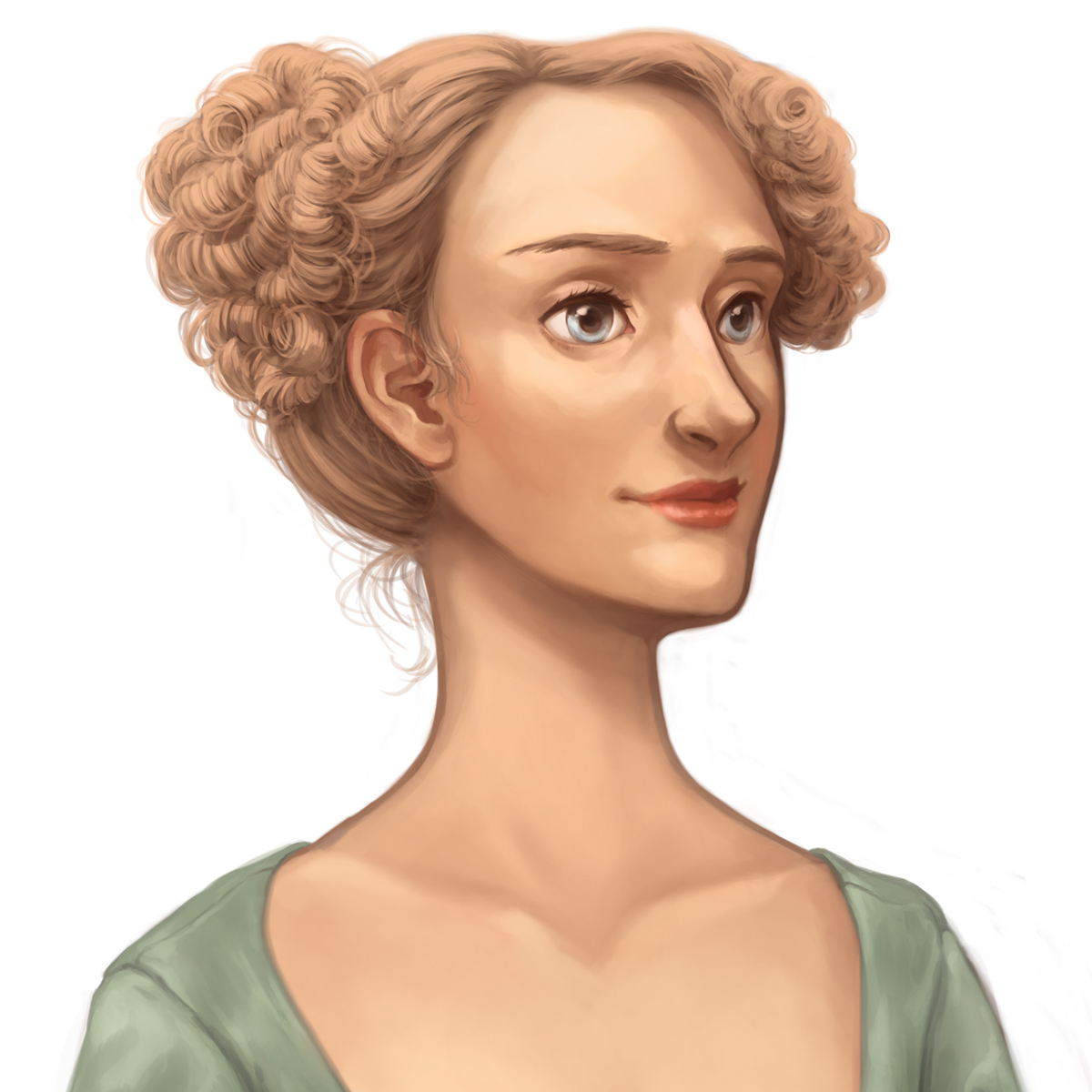Sense & Sensibility, chapter 23: Game, Set, Match
After musing on the aspect of Elinor’s character that irks me, I am happy to report that here she at last takes on an active role in her own story and I am back on her team. Whatever else we can say about Lucy (more on that in a bit), at least her decision to confront Elinor has resulted in the latter stepping up and taking control of her situation. Naturally, this being a Jane Austen novel, the most Elinor can do is remain cool under pressure and hide her love away. (Quick—name an Austen heroine who doesn’t have to keep her feelings for her male counterpart a secret. I’m not even sure if Catherine Morland counts … )
I’ve had time to read some feedback on my last post and I have to admit, I found more Lucy sympathizers than I thought there’d be. I understand if my language seemed too abrasive to you. For clarity, I do sympathize with Lucy’s situation: she’s relatively poor, seems aware (to some degree) of her lack of refinement, and knows that her engagement with Edward is the best thing going for her. It’s Lucy herself—her back-handedness, her ruthless behavior, her insincerity—that I can’t stand. It’s the way Lucy forces her friendship onto Elinor when she could have left well enough alone, which, of course, reveals how little faith she has in Edward.
Is this doubt warranted? Elinor thinks so: “Was [Edward’s] engagement to Lucy an engagement of the heart? No; whatever it might once have been, she could not believe it such at present. His affection was all [Elinor]’s own.” So, yeah—it makes sense that alarm bells would be ringing in Lucy’s mind. Elinor extracts that the past four years would “have opened his eyes to her defects of education” while the appeal of Lucy’s “simplicity” has probably decreased. And this growing reluctance to marry Lucy would have contributed to Edward’s reluctance to find a steady job as well as to his general, you know, moping around. He acts like he’s stuck because his secret engagement got him stuck.
Speaking of Edward, Elinor’s feelings for him don’t take too much of a hit. His frequent visits to Norland now seem “highly blameable” in the light of this news, but she thinks marriage to Lucy is punishment enough for him. Notably, one of the reasons why Elinor is relieved she cannot tell her family this secret is because she couldn’t bear “hearing that condemnation of Edward” from them. (Her main reason is that the Dashwood girls are not that great at emotional support and that their despair would be a drain on Elinor’s “self-command.”) Despite some duplicity, Elinor still values Edward’s affection.
Of course, Elinor still doesn’t know all yet, so she sets out to collect more intel. She’s not sure how strong Lucy’s feelings are for Edward—only that Lucy’s decision to confide in Elinor is proof of her jealousy. She wants to get the better of Lucy and give “herself the comfort of endeavoring to convince Lucy that her heart was unwounded.” In other words, she’s ready to play Lucy’s game—and beat her at it to boot.*
Finally, Elinor is given such an opportunity one day at Barton Park, when Lady Middleton passive-aggressively prods Lucy into fixing up a basket for one of her spoiled brats. And this is one rare moment where I really do pity Lucy, if only because Lady Middleton’s rudeness is so uncalled for. Of course Lucy acquiesces to this not-command in her typical over-the-top fashion, which doesn’t earn her my respect, but it at least illustrates how important it is to Lucy that she stay on Lady Middleton’s good side. And then Lady Middleton (sort of) gets a taste of her own medicine when Marianne turns her nose up at a game of cards and rudely insists on playing the piano. Not unlike Lucy, Elinor is called upon to placate their hostess’s feelings—the difference being that Elinor is making up for Marianne’s behavior** while Lucy must ignore the rudeness of Lady Middleton.
With Lucy accepting Elinor’s offer to help her in her task, we leave “the two fair rivals … seated side by side at the same table, and with the utmost harmony engaged in forwarding the same work.” Did anybody else just get chills?
Round 2 begins next chapter.
Credit to Flo Minowa, one of my favorite Austen fan artists.
*Shapard suggests that “a less than ideal pride” is partially motivating Elinor here. It could be argued that Elinor’s pride in her sense and practicality is meant to contrast with Marianne’s pride in her romantic ideals. However, it always seemed to me that Elinor suffers less than Marianne does due to pride, so I don’t know if there’s much of a message there other than “don’t go overboard with the romantic ideals.”
**A quick check-in with Marianne reveals that she “expect[s] to see [Willoughby] in every carriage which drove near their house,” which suggests that a) she has complete faith in him even though b) he left her with a very vague timetable as to his return.



I'm certainly no fan of Lucy, but what chills me is that a lot of women from that time had no better alternative than marriage if they wanted any kind of a decent life--not surprising that Lucy should hold on to her engagement with Edward as tightly as she can. Not everyone can be an heiress with 50,000 pounds. But yeah, I can sympathize with her situation but not so much with her. She is a kind of "mean girl" but she pales into insignificance next to Fanny, the WORST woman in all of Austen.
ReplyDelete